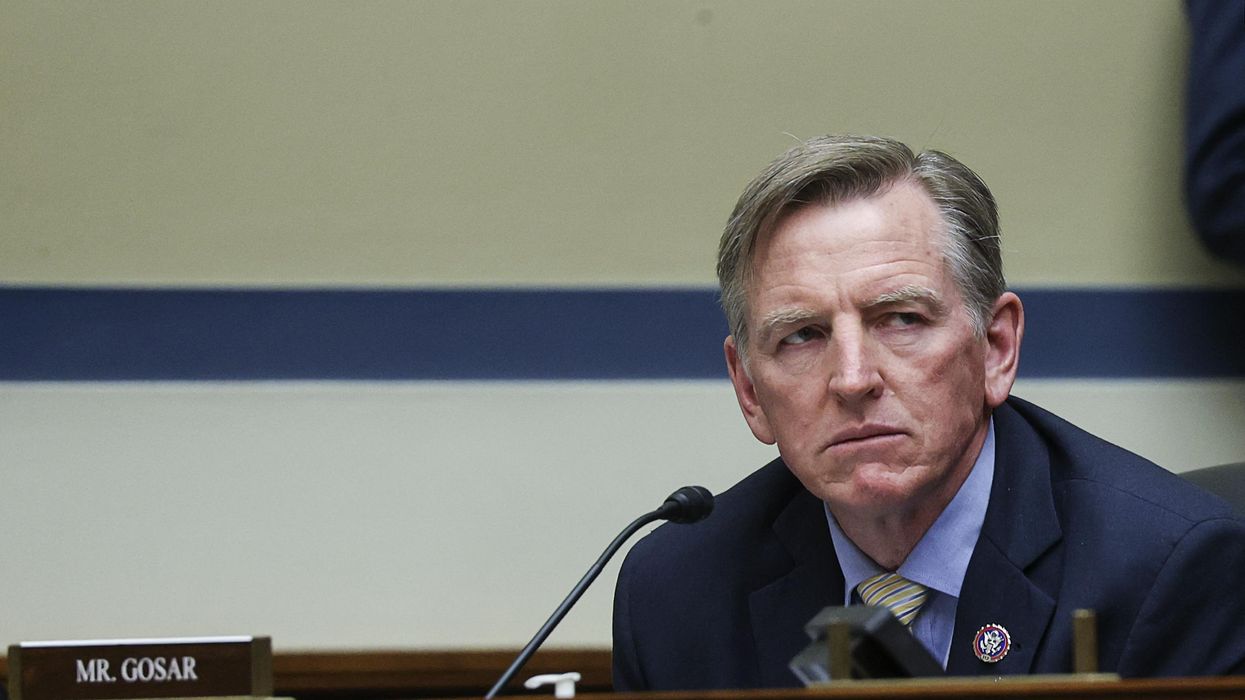For the first time in more than a decade, the House of Representatives censured one of its members Wednesday. While the rarely used action does not include expulsion, Rep. Paul Gosar faces other consequences that hamper his ability to participate in the legislative process.
The House voted 223-207 to censure the Arizona Republican after he shared an animated video on social media depicting him killing Democratic Rep. Alexandria Ocasio-Cortez and attacking President Biden. The vote was split largely along party lines, with only two Republicans — Liz Cheney of Wyoming and Adam Kinzinger of Illinois — joining Democrats in the affirmative. (One other Republican, David Joyce of Ohio, voted present.)
This week's censure is only the 24th time such a disciplinary action has been taken in the House. While the disciplinary action has been used sporadically in modern history, it was more popular in the 1800s when disputes over the Civil War would break out.
The implications of censure
To censure a member of Congress means to register deep disapproval with the member's misconduct. It's a more severe formal rebuke than reprimanding, but doesn't go as far as expelling the lawmaker from the House.
"[Censure] is the first level of punishment that carries actual consequences for the members beyond a public embarrassment or a public reprimation. Censure has teeth," said Brad Fitch, president and CEO of the Congressional Management Foundation.
When censured, members can lose their seniority and committee assignments, which significantly diminishes their power in Washington. In Gosar's case, the Arizona Republican was stripped of his two committee assignments: the Oversight and Reform Committee and the Natural Resources Committee. Gosar can still remain in his caucuses, cast floor votes and make procedural motions.
Another aspect of censure is public embarrassment. When the House speaker reads the resolution calling for the censure of a member, that lawmaker must stand in the well of the House — front and center in the chamber, facing their colleagues. During Wednesday's vote, some of Gosar's conservative colleagues stood behind him in the well.
"One cannot diminish the psychological impact of having to stand in the well and hearing the censure read to all your colleagues," Fitch said. "It's perhaps done for dramatic effect, but from a congressional perspective and from the history of the House and Senate perspective, it has weight, as well as the actual other punishment that comes."
The history of censure in Congress
The House first censured one of its members in 1832 when Rep. William Stanberry of Ohio insulted Speaker Andrew Stevenson of Virginia. But perhaps one of the most well-known and dramatic incidents that led to a censure took place two decades later.
In 1856, tensions in Congress over the expansions of slavery came to a boiling point when Rep. Preston Brooks of South Carolina brutally beat Sen. Charles Sumner of Massachusetts with a cane in the Senate chamber. The House failed to reach a two-thirds vote to expel Brooks for his actions, but lawmakers did vote to censure Rep. Laurence Keitt, who assisted in the assault on Sumner.
Before Gosar, the last House member to be censured was Democrat Charles Rangel of New York in 2010 over a string of ethics violations.
Although not a censure, the House did vote earlier this year to strip Georgia Republican Marjorie Taylor Greene of her committee assignments for offensive social media posts she made before being elected to Congress.
The Senate has had only eight instances of censure, with the most recent rebuke occurring in 1990, when Republican David Durenberger of Minnesota was punished for campaign finance and ethics violations.




















Marco Rubio is the only adult left in the room